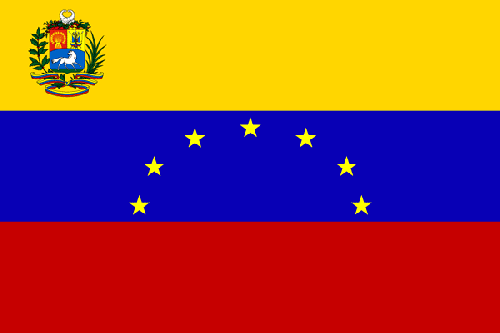Being a geek in Venezuela
Talking about Monetize, PROgramming and Users contributions.
Yesterday I bought a MacBook on the Apple Store using some of the income generated by this blog. Do you know why I could do this? Because I am a geek, and because I live in Italy.
If I lived in Venezuela, things could have been quite different. This is the story of John Freddy Vega, a blogger and geek from Venezuela.
He runs Cristalab, a blog full of AS3 and PHP tips, just like mine. But it’s not as easy as it seems.
« Any self-respecting geek has certain basic needs, and Venezuelans are no exception: smartphones, laptops, permanent internet connection, access to information and, above all, the ability to purchase a lot of stuff we love although we don’t need it at all.

That’s why Venezuela’s technology case is so curious. We are one of the Countries with highest Blackberry penetration, so much so that RIM (Research In Motion: the Canadian company that developes the BlackBerry smartphone) people were forced to know we’re not an African country, we have crappy but still profitable Internet connections and we can even (in many cases) afford a cable TV.
On the other side, we are a Country under heavy control by the Government about the purchase of dollars, either to travel (in which case the Government itself tells you how many dollars you can purchase, at a given fee) and for internet shopping (which limit – the so called “quota limit” – is $400).
The control over dollars makes it impossible to buy on the Internet
Do you charge in dollars? Then you must sell them to the Government, that pays you in the official currency, with a currency exchange set by the Government itself (at the time of writing this article, 4.30 Bolivars for every dollar) and you can’t have dollar deposits in Venezuelan banks unless you have so much money that they’ll open for you a deposit abroad and let you manage it from your bank.
These restrictions are particularly annoying to the geek, when he wants to do things than almost any other Latin American geek can do, like buying a new Tablet on eBay or on Amazon, or buying a Geek Pillow. Needless to say we can’t buy things like the iPad or – much more to my taste – the Nexus One from Apple or Google pages.
Venezuela used to be a technological Country
In the rest of Latin America, Venezuela is seen (or has been seen for many years) as a rich country, thanks to large amounts of money due to oil incomes. The unseen truth unveils high poverty levels, which increase as we get devaluations (recently we had the last one, 100%) and that our ability to acquire foreign currency and/or items brought from abroad is becoming more and more complicated. Consumption limits and exchange controls are now part of our biggest problems (not to mention other problems like the energy crisis or the bad water service we are suffering in this moment).
Just to say one example, not so long ago the technology gap between U.S. and Venezuela was about a week, and this made Venezuela an highly technological Country. Now the gap can be of months.
You can leave the Country only if approved by the Government
I still bitterly recall that because of these limitations I couldn’t go to Adobe Live 2009 in Lima, and before that I couldn’t go to Bogota to an Aikido seminar with two of the most important masters of the continent in this Martial Art. Things that for other people are just a matter of having or not having enough money to afford them, for us it’s a matter of having the luck our currency is authorized and not exceeding the limit imposed.
We must clarify something: currency regulation is nothing new, and it’s a valid idea under certain circumstances, moreover it’s not the first time we have it. What’s illegal is: 1. It is not common to have limited access to foreign exchange 2. A control on the price of the dollar should be a temporary measure, usually a couple of months at most. We’re having it for about 3 years.
How to deal with these restrictions
If you need the new MacBook, or the Nexus One or whatever, your solution is getting the money through Paypal (which has no agreements with any bank in the Venezuela), having someone bringing them from abroad and pay them in Bolivars, then buy it on the local market with prices that can even be three times the original price in foreign markets or get dollars in the parallel market (black market).
I do not want to enter the political issue, which is always tricky, but make it clear that being geek in my Country, Venezuela is becoming a more and more complicated issue, usually with more disappointments than successes.
I am sure we will seek ways to keep up on what we love and – in many cases – what feeds us.
Be careful when you are choosing who you want to be at the Government. »
Do you live in a Country with restrictions? Share with us your experience, contact me to have it published.
Never miss an update! Subscribe, and I will bother you by email only when a new game or full source code comes out.

